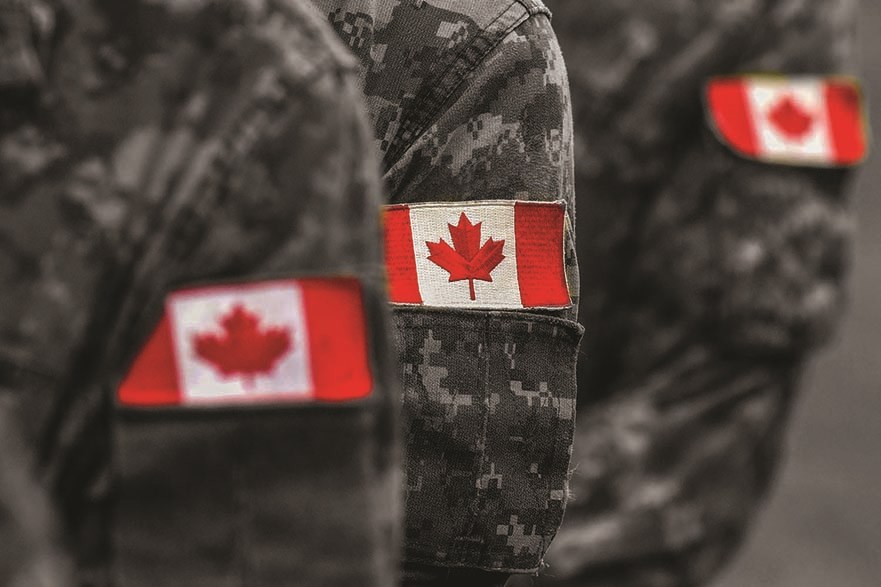Keeping members of the Canadian military safe yet ready to respond as needed in the face of a global COVID-19 pandemic requires a plan with laser precision.
Queue Operation LASER.
Chief of Defence Staff General Jonathan Vance authorized the third phase of the Canadian Armed Forces (CAF) pandemic contingency plan, CONPLAN LASER.
“The CAF does not see any greater threat to ourselves or Canadians than what has been described by health authorities,” Vance wrote in a letter addressed to “the best Sailors, Soldiers, Aviators and Special Forces Operators in the World” on March 13, describing a global coronavirus pandemic that, as of Wednesday, had infected more than 372,000 people, causing over 16,200 deaths worldwide.
“However,” Vance continued, “we have a unique and existential obligation to Canada to continue operations, to be ready for known operations and contingencies, and for any unknown challenges we could face.”
With 65,000 regular force members, more than 2,000 of whom are currently deployed on 20 missions, the Canadian Armed Forces is taking “unprecedented measures” to help prevent the spread of COVID-19 while maintaining essential operations and their ability to respond as needed.
- COVID-19 UPDATE: Follow our COVID-19 special section for the latest news on the coronavirus pandemic, as well as resources, FAQs and more.
The phases of CONPLAN LASER include preparedness, pandemic alert, response and post-pandemic restoration.
In an effort to maintain “effectiveness and readiness," once the third phase was authorized military members were banned from international travel and limited to ground travel within 250 kilometres of their workplace or home.
“Generally, travel is constrained for CAF members when risks are elevated in order to safeguard them, to preserve operational capabilities and readiness, and to ensure that they are capable of assisting civil authorities and Canadians, should the need arise,” said Jessica Lamirande, a spokesperson with the Department of National Defence in a statement on Tuesday.
Only essential core military activities will continue locally and abroad, and the majority of Canadian Armed Forces and Department of National Defence staff will be asked to stay home, in keeping with Health Canada’s recommendations for social distancing.
Those serving outside of Canada will remain in place, but are asked to “adopt a protective posture and regime.”
All activities that would have usually involved large gatherings have been cancelled, CAF members are banned from attending or hosting any public events or conferences and there will be no visitors allowed on units or at headquarters or bases.
This includes cancelling Maple Resolve, an annual international training exercise that was supposed to take place on CFB Wainwright in May that would have involved 5,000 personnel.
CAF training schools across Canada were shut down on Tuesday. Staff and students are being sent home where possible, but those who ‘live in’ who cannot return home will be confined to those bases with a small staff of instructors, cooks and medical personnel.
“We must protect our students and staff and do all we can to prevent an outbreak of COVID-19 in our training institutions that could overload local medical capacity,” Vance wrote.
For other CAF members living on base — with more than 6,200 regular and reserve force members and 500 civilian defence employees working at CFB Edmonton where there are 500 residential units on base and more than 1,000 people working at any time at CFB Wainwright where nearly 400 people live on base — the CAF is following Health Canada guidelines for social distancing and good hand hygiene.
Vance said these measures are in place to prevent the CAF from becoming “an unwitting vector” for the novel coronavirus, but also to keep CAF members healthy and ready to respond as needed.
While the Canadian government has yet to call on the military for assistance in the face of the COVID-19 pandemic, Vance said the CAF is making contingency plans to be ready however for whatever may be needed.
“We must be ready with people, plans and equipment,” Vance said.
These strict measures under CONPLAN LASER were put into effect for a three-week period, but that could be extended as the virus continues to spread.




